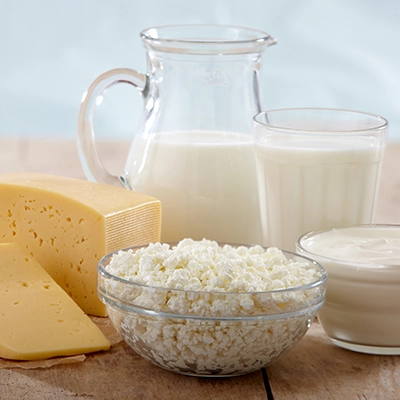Is Cheese Gluten-free?
Whether you have a medical reason or you are just curious about gluten-free foods, you may wonder if cheese contains gluten.
Most cheeses are indeed gluten-free. In fact, according to the Celiac Disease Foundation, the dairy group is a naturally gluten-free food group. This should make sense once you understand where gluten actually comes from – it is a protein found in some grains, including wheat, rye and barley. This means that foods from other foods groups like dairy (i.e., unflavored milk, plain yogurt, cheese), fresh fruits and vegetables, and meat do not naturally contain gluten.
Of course, with today’s innovative recipes and diversity of food choices, there is potential for processed cheese, cheese spreads or foods containing cheese to be mixed with wheat, rye, barley or other ingredients like gums or stabilizers made from gluten-containing grains. So, as a rule of thumb, use these three tips when checking to see if a cheese contains gluten (and always consult with your doctor or registered dietitian if in doubt):
- Check the food label. Does it state on the package that it is gluten-free? Labeling is voluntary and many foods may tell you right on the package. If it is not stated on the package that it is gluten-free, then read the food label and check for words like wheat or made from wheat, barley or rye. Also, the Food and Drug Administration has requirements that manufacturers must follow for labeling foods as gluten-free, so if it states it, it must comply and is gluten-free.
- Research. Call the number on the food label and ask the manufacturer if it is gluten-free. You may also find more information from the QR code if you have a QR code reader app on your smartphone or tablet, or you can try the company’s website, too.
- Buy natural, hard cheeses. For those avoiding gluten, it’s always best to follow the first two tips. When it comes to cheese, natural, hard varieties such as Cheddar, Gouda, Monterey Jack, Parmesan or Swiss are a good place to start. Other cheeses may be okay, but you want to be sure either by reading the food label or discussion with the manufacturer (see tip No. 2).
Many people who are curious about gluten often seek information on lactose. Check out our 12 tips here.















